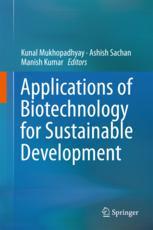

Most ebook files are in PDF format, so you can easily read them using various software such as Foxit Reader or directly on the Google Chrome browser.
Some ebook files are released by publishers in other formats such as .awz, .mobi, .epub, .fb2, etc. You may need to install specific software to read these formats on mobile/PC, such as Calibre.
Please read the tutorial at this link: https://ebookbell.com/faq
We offer FREE conversion to the popular formats you request; however, this may take some time. Therefore, right after payment, please email us, and we will try to provide the service as quickly as possible.
For some exceptional file formats or broken links (if any), please refrain from opening any disputes. Instead, email us first, and we will try to assist within a maximum of 6 hours.
EbookBell Team

0.0
0 reviewsThis book discusses different bioprocesses to produce value-added compounds, the science behind their production, the economics of their introduction to the marketplace, their environmental impacts, and their implications for world agriculture. It also provides insights into various technologies and protocols used.
The major strength of biotechnology is its multidisciplinary nature and broad range of scientific approaches. Recent advances in various biotechnological fields are facilitating the production of fine chemicals, recombinant proteins, biomaterials and pharmaceuticals. Biotechnology plays an important role, especially in the fields of food production, renewable raw materials and energy, pollution prevention and bioremediation. Biotechnology’s greatest contribution is in agriculture – in making crops more efficient. Resource recovery, recycling and hazardous-waste disposal are other environmentally beneficial facets of biotechnology. Thus, biotechnology is a pivotal tool for sustainable development, which has become a priority for the world’s policy makers.
The concept of sustainable development is based on the goal of increasing the basic standard of living of the world’s growing population, without depleting finite natural resources and degrading the environment. Emerging biotechnologies offer novel approaches with the potential to achieve the goal of sustainability and striking a balance between developmental needs and environmental conservation.